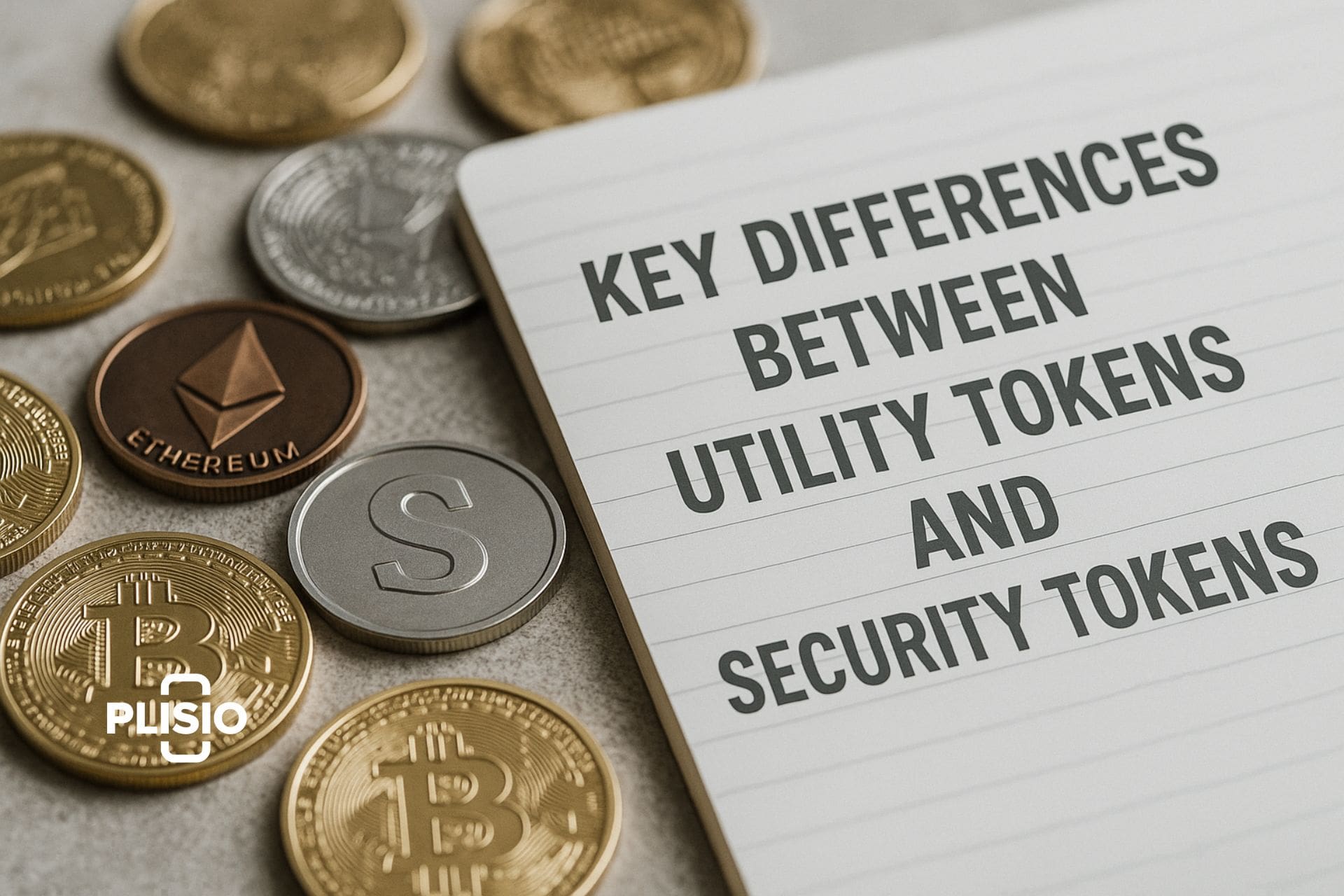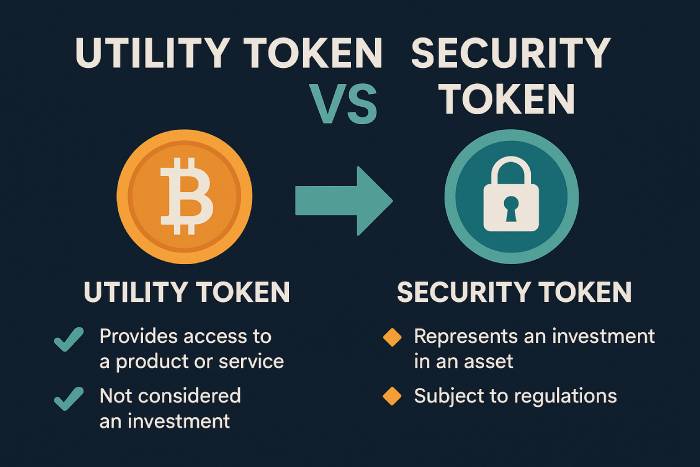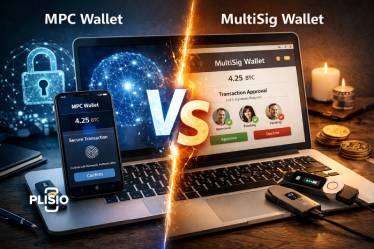Key Differences Between Utility Tokens and Security Tokens in Crypto, Blockchain, and Digital Assets

Bitcoin reached a record high of $120,000 on July 14, which got people interested in the whole crypto industry again. By the middle of 2025, the total market value of digital assets will be over $3.2 trillion. This has led more people to look for other ways to invest outside stocks and fiat currencies.
When new people join the crypto world, they soon learn about tokens. It quickly becomes evident that not all tokens are the same. Utility tokens and security tokens are the two main categories that people are talking about right now.
It's important to know the difference between utility and security tokens, even though the words sound identical. This is especially true for people who are thinking about buying. A token may look lucrative on an exchange, but its real value relies a lot on what kind it is, how it will be used, and what rules it has to follow.
Think about this: You're playing a Web3 game and it tells you to buy tokens to make your game better. You could get into money or legal trouble if you don't know if it's a utility token or a security token.
We will explain the main differences between utility tokens and security tokens in this guide, using real-world examples, statistics from 2025, and expert opinion.
Basics of Blockchain and Token Types: What You Need to Know
You should know the difference between crypto tokens and coins like Bitcoin and Ethereum. Coins have their own blockchains. Tokens, on the other hand, are digital assets that are built on top of existing blockchains, with Ethereum being the most popular one.
Tokens can be used in many different ways on decentralized networks. Depending on the type of token created, they can be used as access keys, governance tools, or investment vehicles.
Dr. Alicia Cheng, a blockchain economist, says that "a token is a programmable asset that can stand for anything from game credits to tokenized equity." The type of token determines its purpose and legal status.
There are two main types of tokens: utility tokens and security tokens. Even though both are part of the larger crypto token environment, they have different functions, privileges, and legal duties.
Utility Tokens and Access: Examples of How Utility Tokens Work
You mostly utilize utility tokens to go to a product or service on a network. Pixels, a blockchain-based farming game with 1.83 million active users as of May 2024, is a nice example. Players can use the $PIXEL token to improve their assets, make tools, or buy land in the game.
Utility tokens are different from security tokens because they don't show ownership or financial interest. They provide a purpose and let holders use the platform's capabilities. In simple terms, they're "access passes" for the internet.
Sarah Novak, Head of Product at Plisio, says, "Utility tokens give users flexibility and engagement, but they don't give investors rights."

By the end of 2025, the market for utility tokens is expected to be worth more than $400 billion. This growth will mostly come from gambling, loyalty programs, and decentralized services. Utility tokens, on the other hand, are mostly unregulated, which means that people who own them have to do more work to figure out how risky they are.
Utility tokens are things like:
- Basic Attention Token (BAT) is a way to get compensation for ads in the Brave browser.
- $PIXEL in the world of blockchain gaming
Loyalty points on marketplaces that aren't owned by anyone
Security Tokens and Equity: Learning About Regulated Token Types
Security tokens are given out as investment items. They are used to show that you own something, such a piece of real land or stock in a firm. Because of this, banking regulators keep an eye on security tokens and they have to follow strict rules on what they can and can't say.
For example, RealT is a U.S. platform that turns real estate into tokens. Users can buy security tokens that stand for a small part of a rental property and get passive income from rent that is spread out.
In May 2025, Switzerland's Six Digital Exchange worked with Citigroup to turn shares of private companies into tokens. This was a big step forward for equity tokens in regulated marketplaces.
Jacob Hwang, a legal counselor at the CryptoLaw Institute, says, "Security tokens are the result of combining traditional finance with blockchain technology." "But they are subject to laws and oversight that protect investors, unlike utility tokens."
The value of security tokens depends on more than just how many people want them. It also depends on how well the asset performs and the organization that issues the token. Also, security tokens usually need a license, and only accredited investors may be able to buy them.
Key Differences in Security Token Offering:
- Securities laws apply to security tokens.
- Security tokens show that you own a business or asset.
- People regularly utilize security tokens to share equity, debt, or earnings.
Important Differences Between Utility Tokens and Security Tokens
Mixing up utility tokens with security tokens might cost you a lot of money. You might buy a token thinking it will make you money in the future, but then you find out it just works in the app or, even worse, that it is utilized in a way that breaks financial rules.
Chainalysis says that 12% of all legal challenges involving cryptocurrencies in 2025 were caused by misclassifying the type of token.
Knowing if a token means ownership, access to services, or both can help you follow the rules and keep your money safe.
Dr. Cheng says that "the classification of security or utility tokens is important not only for legal reasons, but also to figure out what the token holder can expect in terms of rights and value."
What kind of token is best for you: utility tokens or security tokens?
Don't only look at price trends or buzz when you look at tokens. Think about this: Is this token meant to be utilized on a platform, or does it give you ownership and income? Your aims should help you decide whether to buy utility tokens or security tokens.
- Utility tokens are all about how to use them and get to them.
- Security tokens are all about ownership and making money.
- Depending on how they are set up, tokens can be used to pay for things, get services, or invest.
In summary, it's important to know about utility tokens, security tokens, and everything else in the middle in order to get around the changing world of cryptocurrency.
If you're looking into real-world asset tokens, payment tokens, or equity tokens, it's important to recognize the main differences between utility and security tokens. This will help you stay secure, smart, and compliant with Web3.




